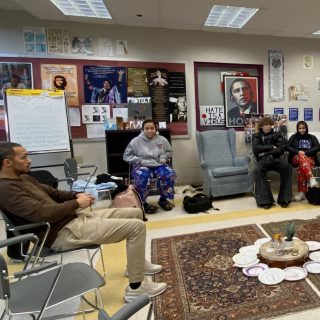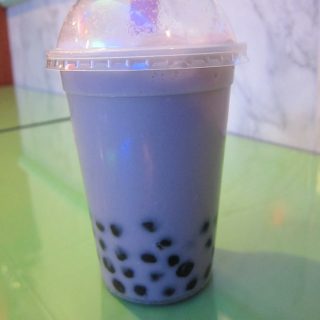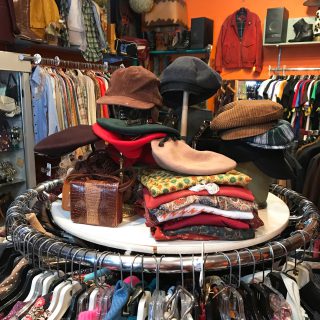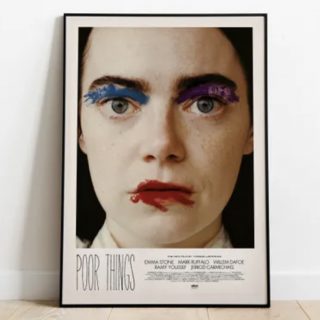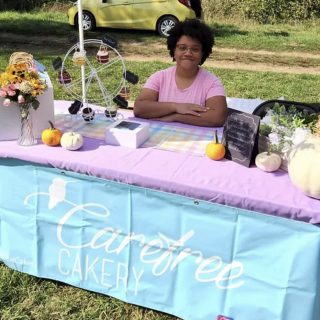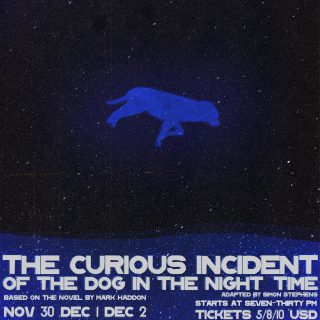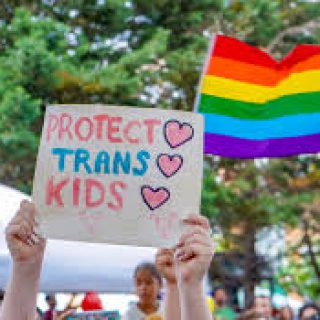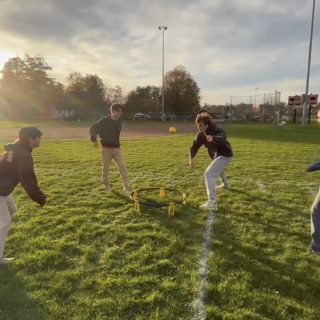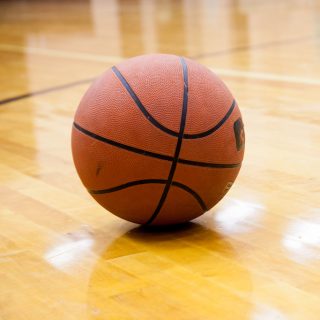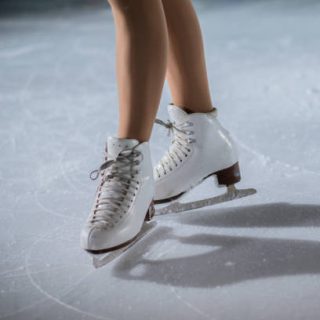‘Young people are the bastions for change in this country’: an interview with Hannah Moushabeck
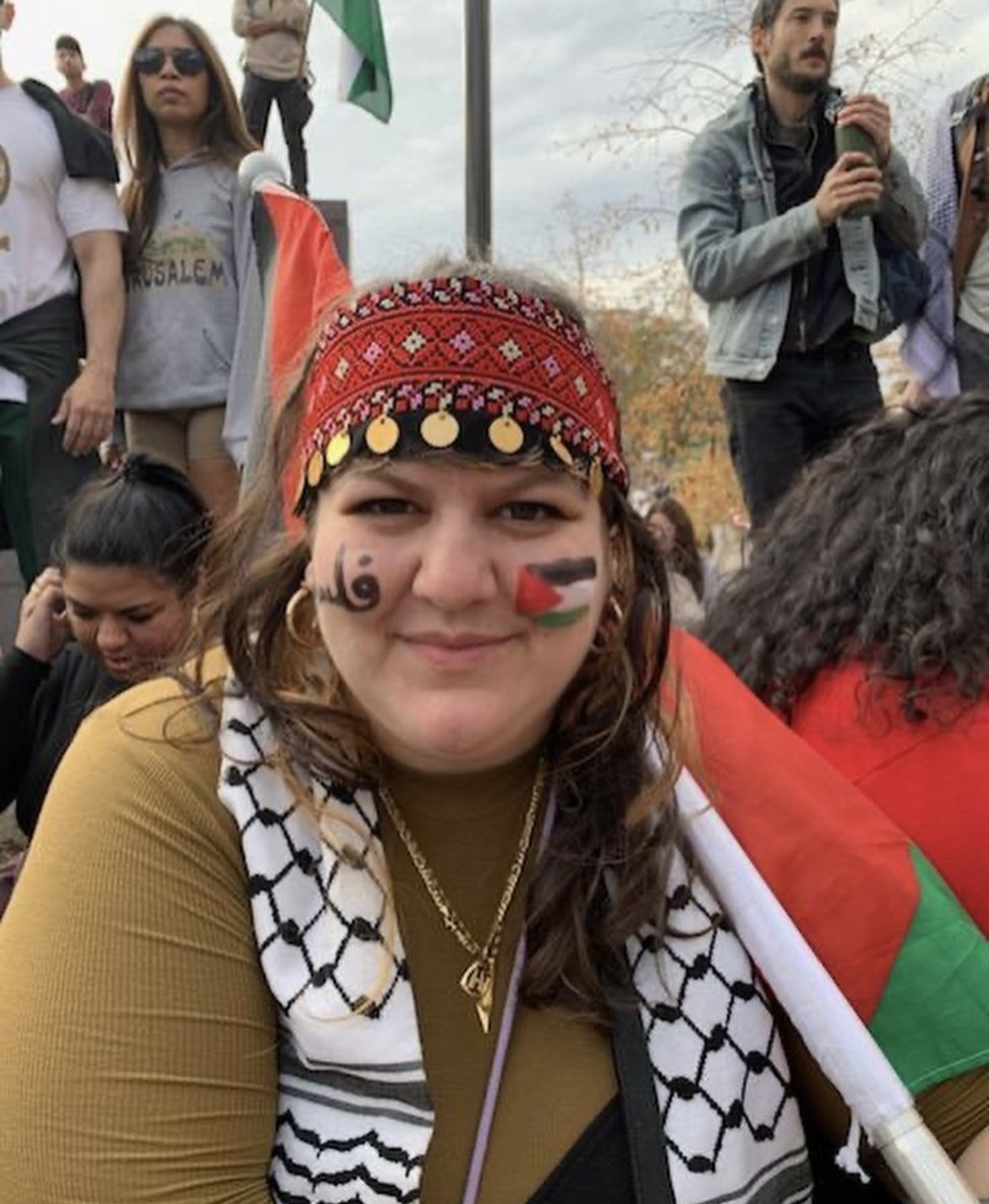
After reading about the Israel-Hamas war in Journalistic Writing class and watching reactions unfold on the ground and on social media all over the world, I set out to talk, and more importantly to listen to, members of our community who have a deep connection to what is happening in Gaza and Israel. I spoke with two Amherst residents, one Palestinian American and one Jewish, both of whom are writers by trade. Both are invested in anti-oppression work. Their interviews are printed separately and their views are their own and by no means represent an entire group. My hope was simply to move beyond scrolling on Instagram or TikTok and to speak at length with people who are reeling from what is happening in this part of the world, people who hold a lot of knowledge and care deeply.
Hannah Moushabeck is a queer, second-generation Palestinian American author, editor, and book marketer who lives in Western Mass. According to her bio on hannahmoushabeck.com, she was “raised in a family of publishers and booksellers in Western Massachusetts and England. Born in Brooklyn into Interlink Publishing, a family-run independent publishing house, she learned the power of literature at a young age. She is the author of Homeland: My Father Dreams of Palestine (Chronicle Books, March 2023). She lives in Amherst, Massachusetts on the homelands of the Pocumtuc and Nipmuc Nations.” Moushabeck has been posting daily on Instagram about Palestinian liberation, calling for a ceasefire in Gaza, and sharing snapshots of her activism and time spent in community with others, at rallies and vigils.
Ayo: What is your connection to Palestine?
Hannah: I’m Palestinian American. My family was ethnically cleansed from Palestine in 1948 during what the Palestinians called the Nakba, when over 700,000 Palestinians were displaced from their ancestral land. I grew up with stories of Palestine and have grown up fighting for a free Palestine as my parents did before me. I have family in Ramallah and the West Bank. And I have friends in Gaza.
Ayo: What and how are you feeling right now about what’s going on?
Hannah: I am utterly devastated about events that have been carried out by the Israeli government these past few weeks. Not just the bombing, but the humanitarian atrocities; including shutting off the water, shutting off electricity, and not allowing food into what had been described as “an internment camp” where 2.5 million people (half of whom are under the age of 18) live. The Gaza Strip is the most densely populated place on Earth.
I’ve been crying, a lot of crying, I wake up every morning, and check that my friends are still alive. And some have not been [accounted for]. And I’m also very, very angry at Biden. The person I voted for is completely denying the humanitarian crisis and has continued to reaffirm and fund Israel—an apartheid state. He is asking for even more of our tax dollars to be sent to be used in military aid to carry out war crimes.
While I’m very angry, there have been moments of hope. I’ve been out protesting almost every day. Last night, I attended and spoke at a vigil in Amherst in partnership with Jewish Voice for Peace, and we came together to grieve. And I felt deeply held and understood. I felt hopeful when hearing about the actions of UMass students, demanding that their university divest from Israel, and in the process, 56 students were arrested. Smith students and Hampshire students are protesting also. I’m finding hope in my immediate community, in people online, and in person.
Ayo: Would you describe yourself as religiously affiliated with the area in any way shape or form?
Hannah: I’m not a religious person and I want to be clear that the crisis is not a religious one. Palestinians are Christian, Muslim, Jewish, Druze, Hindu, etc. But culturally, I’m a Christian Palestinian and my ancestors were deeply tied to the Greek Orthodox Church. My great-grandfather was one of the religious leaders of their Greek Orthodox church in Jerusalem.
Ayo: Do you believe in a two-state solution? Do you believe that’s possible?
Hannah: I don’t believe in a two-state solution. I don’t believe that any country in the world should be a theocratic ethnostate [a political structure controlled by a dominant ethnic or religious group]. I believe that all religious groups should be able to have rights in Palestine. I believe that the only way forward is to end military funding for the colonization machine that is Israel and establish human rights for all people who live in the region. This is what many Palestinians and Israelis also want.
Ayo: What would that look like? Do you think it’s possible? Do you have hope for that?
Hannah: I think that the time of colonization in this world is ending. People are waking up to the atrocities caused throughout our history. And I hope for self-determination for all Palestinians. And all indigenous people. I do have hope for that.
Ayo: What actions would you like young people to be taking? Especially people that don’t know a lot about the conflict. How can people help more productively?
Hannah: Young people are the bastions for change in this country. If you don’t know enough about the region, seek alternative news sources than mainstream and corporate media. I would tell them to listen to Gazans who are on the ground who are now posting to social media sites like Instagram and TikTok. I would tell them to watch Al Jazeera for their news or Democracy Now. I would ask them to speak up in whatever way possible, whether that’s joining a protest or having conversations in their community or posting on social media.
You have kids under the age of eight who held a protest on Roblox because their parents wouldn’t let them protest in real life. So there are so many things that you can do. And then most importantly, if you’re over 18, call your representatives, to tell them that you won’t be voting for them unless they call for a ceasefire.
Nowadays politicians talk about “the youth vote” all the time. As these old, more conservative, voters are dying, this younger generation who are coming of age and able to vote are an increasing threat to the right-wing conservatism that we’re seeing. So, I would love the young people to speak up, I would love a real threat to the Democratic Party, particularly as Biden gets in bed with war criminals.
Ayo: Based on where we are right now, with all the events that happened, how do you think that governments and entities in power can move forward?
Hannah: I think that we need to stop funding [the Israeli military]. I think all European superpowers need to stop funding Israel and giving them military aid. And I think they need to condemn the actions of Israel, and possibly put sanctions on them.
Governments around the world are presenting a roadblock for Palestinians, because they won’t recognize them as a country, particularly in the UN.
I think it’s up to the people in these places to be able to come up with a peaceful solution without the meddling of superpowers.
Ayo: Is there an Israel without oppression?
Hannah: Good question. I would probably say, is there an America without oppression? You know, I have hope that our thought leaders and our social justice activists are working towards a future where there are equal rights for everyone in this country, and systemic injustice is rooted out in this country. So I would hope, definitely for any country, that it can exist without oppression.
Ayo: What does liberation for Palestinians look like? You know, a lot of people ask this question. And it depends on who you ask.
Hannah: I think academics far more intelligent than I than I have answered it. My hopes for the region are that it would have become a true democracy where the government was represented personally by its citizens, and by citizens, I mean, everyone in the region, regardless of their race or their religion.
I truly believe in the land-back movement, returning the occupied territories to the Palestinians who are now refugees. I also believe in the right to return.
My family hasn’t returned to Palestine for decades, and we, and millions of others would like to, at the very least, be able to visit our ancestral home. You know, but in terms of the political transition, that’s a question for experts in that field. But I think it’s truly possible to have a country where people live together. In fact, Palestine before 1948 was a country where Christians, Muslims, and Jews all lived together peacefully.
My hopes for the region are that it would have become a true democracy where the government is represented personally by its citizens, and by citizens, I mean everyone in the region, regardless of their race or their religion.
HANNAH MOUSHABECK
Ayo: Have distinctions between anti-Zionism and antisemitism fallen apart?
Hannah: Absolutely. Zionists are not synonymous with Jewish people. The majority of Zionists in this country are white nationalist Christians who want Jews to return to Israel to trigger the Second Coming.
The majority of young Jewish people in this country are anti-Zionist and do not agree with the Government of Israel. And I think that equating the beliefs of Israel and the Jewish people is, in fact, antisemitic.
Ayo: is there anything else you’d like to share?
Hannah: I guess I would say two things that are sort of more personal, [to engage with literature and listen to queer voices]. I wrote a children’s book called Homeland: My Father Dreams of Palestine as a way to share Palestinian joy. It was the first picture book to come out from a major publisher in 30 years by a Palestinian American. So, I would encourage people to read books by Palestinian authors.
Also, listen to queer Palestinian voices. I feel like queerness is often weaponized against Arabs and Muslims. Queer Arabs exist, and our fight for Palestinian liberation is a fight for queer liberation. They are one and the same. None of us are free until we’re all free.

